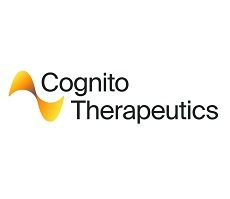 Cognito Therapeutics has announced treatment results from OVERTURE II—an open-label extension (OLE) study of Spectris, the company’s potential disease-modifying therapy for the treatment of Alzheimer’s disease. The results in question were presented at the 2024 American Academy of Neurology (AAN) annual meeting (13–18 April, Denver, USA).
Cognito Therapeutics has announced treatment results from OVERTURE II—an open-label extension (OLE) study of Spectris, the company’s potential disease-modifying therapy for the treatment of Alzheimer’s disease. The results in question were presented at the 2024 American Academy of Neurology (AAN) annual meeting (13–18 April, Denver, USA).
OVERTURE II involved a separate 12-month OLE protocol that followed the six-month OVERTURE I randomised controlled trial (RCT), and saw 83% of OVERTURE I study participants enrolled. OVERTURE I results were recently published in Frontiers in Neurology.
OVERTURE II enabled the evaluation of extended Spectris treatment—which uses proprietary light and sound stimulation to evoke electroencephalogram (EEG)-confirmed gamma frequency brain oscillations—over the course of 18 months. It employed a delayed-start analysis to evaluate the potential of Spectris as a disease-modifying therapy.
“Clinical studies to date with Spectris have demonstrated high levels of adherence among patients, while also showing the potential of Spectris as a disease-modifying therapy,” said Ralph Kern, chief medical officer of Cognito. “This innovative therapy has the potential to be seamlessly integrated as a home-based treatment into the lives of patients and caregivers.”
Statistically significant separation of activities of daily living (Alzheimer’s disease cooperative study-activities of daily living [ADCS-ADL] total score) between active and sham treatment groups was observed at the end of OVERTURE I (p=0.0006), and this was maintained after 12 months of treatment in OVERTURE II (p=0.0045). There was no observed convergence of ADCS-ADL scores between early and delayed start groups in OVERTURE II, according to a Cognito press release.
Participants receiving sham device treatment in OVERTURE I who switched to active device treatment (delayed start) in OVERTURE II demonstrated a similar rate of decline of ADCS-ADL and whole brain volume compared with continued active treatment (early start)—but the delayed treatment group did not catch up to the early treatment group. Cognito claims that these results suggest that combined OVERTURE I and II treatment outcomes with the Spectris device are consistent with published criteria for disease modification, and support early treatment.
No cases of Amyloid-related imaging abnormalities (ARIA) or serious treatment-related adverse events were reported over 12 months in the 44-patient OVERTURE II study. High device adherence (80%) was reported too, and this was comparable to the rate observed in OVERTURE I.








